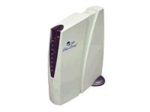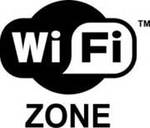The FCC’s decision refusing to give the owners of Boston’s Logan Airport exclusive control of WiFi frequencies could be a real turning point.
On the surface, as Glenn Fleischman notes, the decision merely repeats existing rules, asserting FCC control of the frequency spectrum. But this wasn’t as clear-cut a case as it seems. Massport (which owns the airport) was the landlord of Continental Air (which put in a free hotspot competing with Massport’s paid franchise).
But consider the implications:
- Property owners can’t sign broadband "exclusives" and force renters to pay for access.
- Cities can’t sign WiFi "franchises" (like Google’s in San Francisco) and force others off the frequencies.
There are many out there who pooh-pooh WiFi, saying the spectrum is
overused and useless. In many areas service is degraded to the point
where a WiFi business can’t guarantee throughput, but that’s not the
same thing as useless.
What I hope we’re finding is a growing pent-up demand from WiFi users,
demand that can be exploited. If makers of WiFi gear put flyers in
their boxes, or sent e-mail to their registered users, demanding more
spectrum in order to deliver faster service, that might have some
impact.
And the FCC would approve.
If pressure from the user community can be energized by manufacturers — the people who actually control the use of the spectrum when it’s unlicensed — we can have real, meaningful change.












